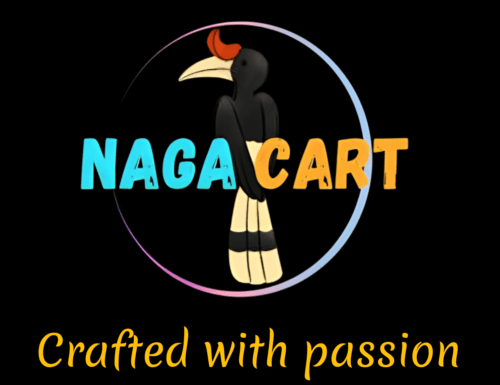In today’s digital era, e-commerce platforms are transforming the way we shop, bringing diverse and culturally rich products to the fingertips of consumers worldwide. For regions like Nagaland, with its unique crafts and cultural heritage, platforms like Naga Cart have become instrumental in supporting local artisans and entrepreneurs while bringing indigenous products to a broader, often international, audience. This evolution has created a bridge between mainland customers and the artisans of the Northeast, making Naga culture accessible to a global market. Here’s how e-commerce is helping local talent thrive and foster a cultural exchange that transcends borders.
1. Empowering Local Artisans and Entrepreneurs
The cornerstone of Naga Cart is its commitment to uplifting local artisans and entrepreneurs. By providing a digital marketplace, Naga Cart enables these artisans to sell their handmade products and traditional crafts directly to consumers, bypassing the need for middlemen. This streamlined process allows artisans to retain a larger share of their profits, ensuring that their livelihoods are sustainable and rewarding.
In many cases, artisans in Nagaland and other remote regions face challenges like limited access to markets, lack of visibility, and low pricing for their work. Naga Cart empowers these artisans by giving them an efficient, affordable, and scalable platform to showcase their creations. From intricate hand-woven textiles to handcrafted jewelry, Naga Cart’s focus on authentic, indigenous products ensures that each purchase directly benefits the creator, allowing them to grow their businesses and refine their craft.
2. Expanding Reach to Mainland Customers
With the rise of conscious consumerism, there’s an increasing demand for authentic, handcrafted products that tell a story. However, customers from mainland India often face difficulties accessing these unique products due to geographical constraints and limited distribution channels. Naga Cart bridges this gap by making traditional Naga products accessible to customers across India with just a few clicks.
Through its user-friendly interface and secure online payment options, Naga Cart simplifies the purchasing process, making it as convenient as shopping at any other online store. This accessibility means that mainland customers, who may otherwise have limited exposure to the vibrant culture of Nagaland, can now explore and support local artisans directly from their devices. Moreover, Naga Cart’s focus on quality and authenticity ensures that customers receive products that represent the true essence of Naga culture, strengthening the connection between consumers and creators.
3. Globalizing Naga Culture
In addition to reaching customers within India, Naga Cart has made significant strides in globalizing Naga culture. By promoting traditional products and modern, culturally inspired items, the platform introduces international audiences to the rich heritage of Nagaland. E-commerce is a powerful medium for cultural exchange, and Naga Cart leverages this to showcase unique aspects of Naga culture—from fashion to jewelry, artifacts, and home decor—each piece reflects the identity and heritage of the Naga people.
The global reach of Naga Cart is further enhanced by its digital marketing strategies, which leverage social media, search engine optimization, and collaborations with cultural influencers. By actively promoting its catalog and the stories behind its products, Naga Cart connects global audiences to the Naga way of life, creating a newfound appreciation for the culture and traditions of Northeast India.
4. Preserving Indigenous Knowledge and Craftsmanship
With each sale, Naga Cart does more than just deliver a product; it helps preserve centuries-old craftsmanship and cultural knowledge. Many of the artisans featured on the platform are the torchbearers of traditional skills, passing down techniques honed through generations. By providing a stable and profitable marketplace, Naga Cart incentivizes artisans to continue practicing their craft, thereby preserving these skills and keeping Naga culture alive for future generations.
Traditional craftsmanship is at risk of being lost in a world dominated by mass production and automation. E-commerce platforms like Naga Cart address this by promoting slow fashion and handcrafted products, fostering an appreciation for goods that are made with patience, precision, and passion. This not only supports artisans financially but also ensures that these valuable cultural practices are preserved and passed down.
5. Boosting the Local Economy
Beyond the direct impact on artisans, Naga Cart’s operations contribute to the broader economic development of the region. By sourcing products locally and reinvesting in the community, the platform creates employment opportunities and stimulates local businesses. This, in turn, helps create a more sustainable local economy, reducing the need for migration to urban areas for employment.
When customers purchase from Naga Cart, they not only support individual artisans but also fuel a growing ecosystem of businesses, suppliers, and logistics providers. This has a ripple effect, as the economic stability achieved by artisans allows them to invest in other areas like education, healthcare, and better living standards, creating a self-sustaining model of growth for the region.
6. Promoting Sustainable and Ethical Consumerism
One of Naga Cart’s unique selling points is its commitment to sustainable and ethical practices. By promoting handcrafted, locally sourced products, Naga Cart aligns with the principles of eco-conscious consumerism. This appeals to customers who prioritize environmentally friendly and ethically made products, enhancing the platform’s appeal to global consumers looking for guilt-free purchases. Highlighting sustainable practices also distinguishes Naga Cart from fast fashion and mass-produced goods, emphasizing the positive environmental impact of supporting indigenous artisans.
7. Fostering a Sense of Community
Naga Cart not only facilitates transactions but also fosters a sense of community among its users. Through stories, artisan profiles, and cultural insights shared on the platform, customers gain a deeper understanding of the lives and traditions behind each product. This storytelling approach builds a community of engaged consumers who value the cultural significance of their purchases, leading to greater brand loyalty and word-of-mouth promotion.
8. Overcoming Challenges with Technology
Building a marketplace for indigenous artisans in a remote region like Nagaland involves logistical challenges, such as shipping infrastructure, online payment adoption, and internet accessibility. Naga Cart leverages technology and partnerships to address these challenges, ensuring timely deliveries and secure transactions. The platform’s use of digital marketing and e-commerce tools also empowers artisans to reach audiences beyond what traditional retail allows, paving the way for a modern marketplace in previously underserved areas.
Conclusion
E-commerce platforms like Naga Cart are more than just shopping sites; they are transformative tools that empower artisans, promote cultural heritage, and foster economic growth. By giving local entrepreneurs a global platform, Naga Cart is not only expanding its reach but also paving the way for a more inclusive and diverse e-commerce landscape.




